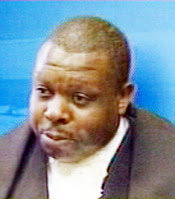Quote of the week
[T]he moral point of the matter is never reached by calling what happened by the name of ‘genocide’ or by counting the many millions of victims: extermination of whole peoples had happened before in antiquity, as well as in modern colonization. It is reached only when we realize this happened within the frame of a legal order and that the cornerstone of this ‘new law’ consisted of the command ‘Thou shall kill,’ not thy enemy but innocent people who were not even potentially dangerous, and not for any reason of necessity but, on the contrary, even against all military and other utilitarian calculations. … And these deeds were not committed by outlaws, monsters, or raving sadists, but by the most respected members of respectable society.
Eichmann in Jerusalem: A Report on The Banality of Evil
Will Judicial Tribunals save our judiciary?
For most reasonable people in
A closer look at the draft legislation suggests that this might be an optimistic view. It is worth revisiting the Hlophe case to see whether the provision of the Judicial Service Commission Amendment Bill would have made a difference in this case.
We know Justice Hlophe received more than R500 000 from Oasis Holdings for what he claims was “out of pocket” expenses. We also know that he first refused to grant permission to Oasis to sue fellow judge Siraj Desai, but then changed his mind at a time when he was still receiving regular payments from Oasis. As Shameela Seedat of Idasa has pointed out, this constitutes a clear conflict of interest and cannot but create a reasonable suspicion of bias in the mind of any reasonable person.
On the face of it, the new Bill would make it much easier to lodge complaints against someone like Judge Hlophe and would ensure that such complaints are dealt with far more promptly and honestly. In terms of the Bill complaints would be lodged with a “Judicial Conduct Committee”, comprised of the Chief Justice and Deputy Chief Justice and three other judges.
This Committee would then have the power to decide whether the matter is serious enough to constitute an impeachable offence or whether it is a lesser complaint not warranting impeachment. Unlike in the present system, the decision would rest in the han ds of judges and the politicians or political appointees on the JSC would not be able to get their grubby little hands on the matter until much later.
ds of judges and the politicians or political appointees on the JSC would not be able to get their grubby little hands on the matter until much later.
If the complaint was less serious, one of the judges on the Committee would then investigate the matter and will be able to get to the bottom of the matter. If necessary a formal hearing would be held and the presiding judge would be able to make factual findings for or against the Judge being accused.
One presumes that a presiding judge would act – as in any other fact-finding matter – in good faith and would not come to the kind of absurd conclusions seemingly favoured by some members of the JSC. Thus, one assumes a judge would find it difficult to conclude that a dead Minister of Justice gave permission to an accused judge to receive money from a company from 2001, when that Minster ceased to be Minster of Justice in June 1999.
In terms of the Bill, if the Committee felt that there was a prima facie case (that phrase again!) for impeachment, it would have to refer the matter to a Judicial Conduct Tribunal. Such a Tribunal would be appointed by the Chief Justice and would consist of two serving judges and one non-judicial member approved by the Chief Justice.
The Tribunal would then have a duty to hear the case for impeachment “without unreasonable delay” and would be able to subpoena witnesses. It would then be able to make recommendations to the JSC for the impeachment of the accused judge if they thought this appropriate. The Act would make it a criminal offence to “knowingly provide false information to the Tribunal” – a clause that should strike fear in the heart of Judge President Hlophe.
The big problem with the draft legislation is that section 20 of the Bill provides that the JSC would be able to receive further submission from the accused judge and then to choose not to follow the recommendations for impeachment by the Tribunal. This is done, one assumes, because the Constitution explicitly states that the JSC should make a recommendations of impeachment to the National Assembly.
However, it means that political support on the JSC for a specific judge could save that judge from impeachment despite the fact that a panel of judges had found that the judge was grossly incompetent or guilty of gross misconduct. In such a scenario respect for the individual judge and for the judiciary would be severely compromised.
Imagine a Tribunal found that Judge Hlophe was guilty of gross misconduct by taking a bribe from Oasis in exchange for giving permission to sue Justice Desai. Imagine further that the JSC then rejected this finding and only gave Judge Hlophe slap on the wrists and allowed him to continue as Judge President.
Such an outcome would be an utter disaster for the judiciary and for our democracy and one would think the members of the JSC would be wise enough to know this and avoid such an outcome. But recent events suggest that there are many members on the JSC that do not have the best interest of the judiciary and our democracy at heart, so it remains a grave concern.
BACK TO TOP

